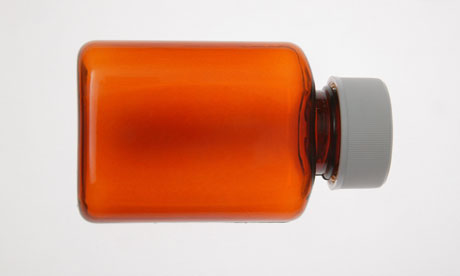
I wonder if you know someone who lives in constant pain? You almost certainly do. Up to 10 million people in the UK live with a chronic illness or long term disability. But how would you know? Unless a condition affects mobility or is otherwise visible, the only clues might be the dark circles under someone's eyes or the strained look they wear too often.
I've been thinking for some time that we need a new word for pain. It's lost all meaning. My pain might be your twinge. I can say I live in constant pain if I suffer from mild backache or terminal cancer. It's virtually impossible to measure and even harder to explain. Even if you know a bit about someone's condition or illness, it's unlikely they will have told you exactly how it makes them feel anyway. When someone asks, most of us sickies don't reply: "Ah, well, all day yesterday, it felt as though someone was stabbing my spine with red hot pokers, but today it hurts so much I want to cry and to be honest, I'd rather be dead." Constant, severe pain is a terrible thing. Untreated, it clouds everything.
I've suffered from a severe, surgical form of bowel disease (Crohn's) for over 20 years, so pain and I are old enemies. When they first operated on me, the disease was so advanced that not only did they discover a 12in abscess in my bowel, but my appendix had been totally obliterated by disease. Something is literally rotting me away from the inside.
As if that weren't inconvenient enough, I am also fatally allergic to morphine. It does something weird to my blood pressure that means I end up needing a crash trolley. I've "stepped away from the light" twice and don't intend to ever do so again if I can help it. Almost the entire range of opiates available is morphine-based, which leaves me up the proverbial creek without a paddle. I'm so sensitive to the drug that even codeine, which converts to morphine in the liver, is out of bounds.
The only painkillers I can tolerate at all are paracetamol and pethidine. I've searched for decades to find an alternative with some of the best pain specialists in the country, but collectively, we've drawn a blank. Pethidine is despised by doctors and these days, is hardly ever used at all. It is shorter acting than morphine, more addictive and carries a greater risk of causing dangerous side-effects. It was Demerol – the US name for pethidine – that newspapers claimed Michael Jackson had overdosed on.
It is almost unheard of for someone to manage pethidine responsibly over a long period of time; most medical staff don't even believe it is possible. In the 20 years or so that I've needed to rely on it, I have never been unable to stop taking it, I've never suffered any symptoms of withdrawal, and I've never resorted to cheating or stealing to get it. Slowly, my GP and consultant have come to trust that – against all the odds – I really can use it periodically for pain without becoming a raging junkie.
Of course, not every doctor or A&E clinician or nurse knows me personally. Staggeringly, despite the networked-world we live in today, if I find myself at an A&E or taken sick out of town or needing to see a doctor on holiday, they know none of this and I have to fight the battle from scratch all over again. Over the years, I've finally come to understand that certain words need translation.
When they hear the word "painkiller" they actually hear "drugs". When they hear the word "pain" they actually hear "addiction". When they hear the word "patient" they actually hear "junkie". So, the conversation then goes something like this: "Hi, my name is Sue Marsh and I'm a [junkie]. I'm experiencing severe [addiction] and need you to give me some [drugs]."
It doesn't matter how many times I try to explain, it doesn't matter that I always carry a copy of a letter from my consultant confirming it all and it doesn't matter that I can show them the dose on my repeat prescription. They simply can't translate those three words to mean anything else. One of the most astounding things you discover on becoming ill is that almost all patients that live with extreme, long-term pain are made to feel like this. Most are simply refused any analgesia at all and have to learn to live in agony.
Doctors are right to be wary of addiction, but if they will prescribe steroids which can cause osteoporosis, and TNF-alpha blockers that can trigger TB, and all the other medications we use today, they need to ask themselves if a person who lives in agony believes that addiction is the worst thing that could happen to them. In any case, if analgesia is well-controlled and understood, a patient might depend on a treatment without being addicted to it.
We are living longer and surviving conditions that would have been fatal just a decade or so ago. Our understanding of pain and our attitude to treating it are long overdue a 21st-century makeover too.

